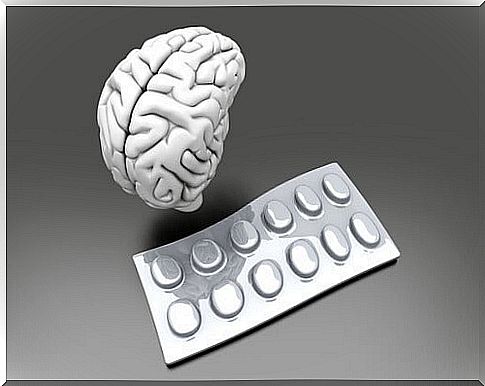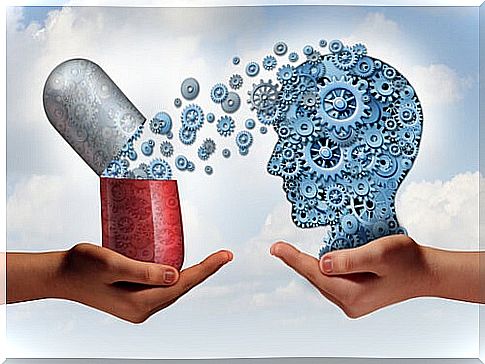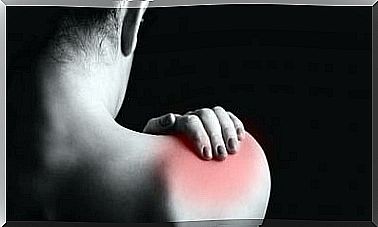How An Antidepressant Works On The Brain

An antidepressant in the brain generates physiological changes that result in improved mood. These changes are induced by the chemical action of drugs and have a limited duration. They also generate a series of side effects that have not yet been fully understood.
Depression is almost an epidemic in the world. Reported cases increase year after year and it is known that there is underreporting. That is, not all those who suffer from this condition come for consultation. What is known is that the use of pills has increased worldwide. Hence the importance of knowing what the action of an antidepressant is like in the brain.
It is important to note that pills are not the only way to treat the problem. An antidepressant in the brain moderates the symptoms of the disorder, but does not eliminate them. In other words, it makes it go into a latent state, but it does not end it. That is why there are treatments exclusively focused on the psychological. Also alternative interventions such as those offered by psychoanalysis or meditation.
The action of an antidepressant on the brain
To speak of antidepressants is to speak of a wide range of medications . Basically we find the classic tricyclic antidepressants, selective serotonin reuptake inhibitors (SSRIs) and selective serotonin and norepinephrine reuptake inhibitors (SNRIs).

Let’s take a closer look at each of them:
- Classic tricyclics. They are the most traditional and are composed of a ring with seven elements and a terminal nitrogen with three elements. They stimulate the production of serotonin, but do not inhibit its reuptake. They have many side effects.
- SSRI. They increase serotonin levels and prevent them from being reuptained or reabsorbed by the body. Apparently they are safer, although Prozac, their flagship brand, has been strongly questioned by some scientists.
- ISRNS. They are considered the most effective. They have the advantage that they do not produce states of sedation. However, the effect of this antidepressant on the brain sometimes leads to tremors, changes in appetite, and other symptoms.
According to most scientists, antidepressants do not cause physical addiction , although they can cause psychological addiction. There are several studies in which a very harmful effect of these pills has been verified, particularly when they are consumed for more than five years. A responsible psychiatrist assumes drugs as a temporary help, not as a condition on which a patient must depend for life.
Other ways to deal with depression
Although an antidepressant in the brain helps to generate and maintain a relatively stable mood, it does not ultimately solve the core problem. Yes, it is possible to overcome a depression, but this is not achieved only with pills. Conventional treatment for this type of disorder requires that pharmacological intervention be added to psychotherapy. It is these two factors that together open a way out.
The drug is a temporary help. It serves to moderate symptoms and make psychotherapeutic work possible. Human beings are not only a biological body, but also symbolic beings.
This means that neurotransmitters condition our mood, but so does the way we interpret and make sense of experiences. No pill gives our lives meaning. This is achieved only through processes that allow the reinterpretation and construction of new meanings.

Alternative approaches
Now, from the psychoanalytic point of view, depression is not a clinical entity by itself. Rather, it has to do with a way of facing reality. Jacques Lacan spoke of depression as a manifestation of “moral cowardice.” It would be the effect of “giving in to desire”, that is, of not reaffirming being. The person does not take full responsibility for his own life and actions. Failure to do so causes you to become depressed.
From the point of view of Eastern philosophies, depression is the result of excess attachments. The emphasis is on something external; the same on which it depends. That dependence, in turn, leads to fear and denial of transience. This is one of the possible explanations for depression.
Some studies tell us that psychotherapies, psychoanalysis, and meditation can have drug-like effects. The action of an antidepressant in the brain is almost immediate and short in time. Psychotherapy requires a greater effort on the part of the patient and is slower. In return, it has no side effects, returns the patient to control of his life and is directed to the root of the problem.









